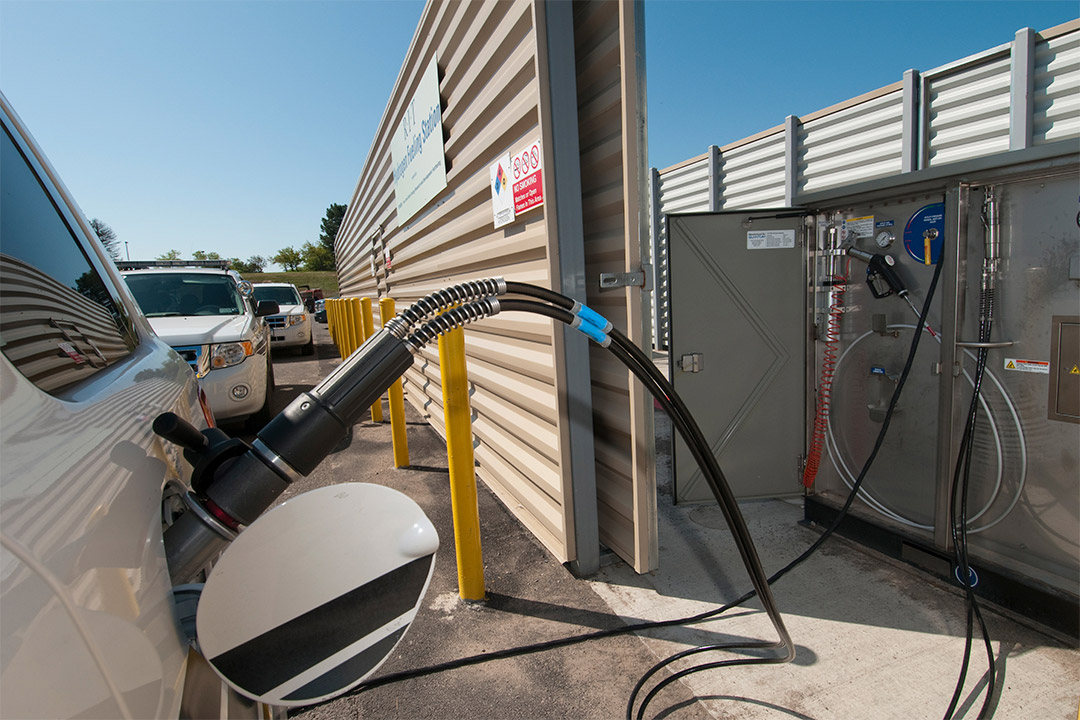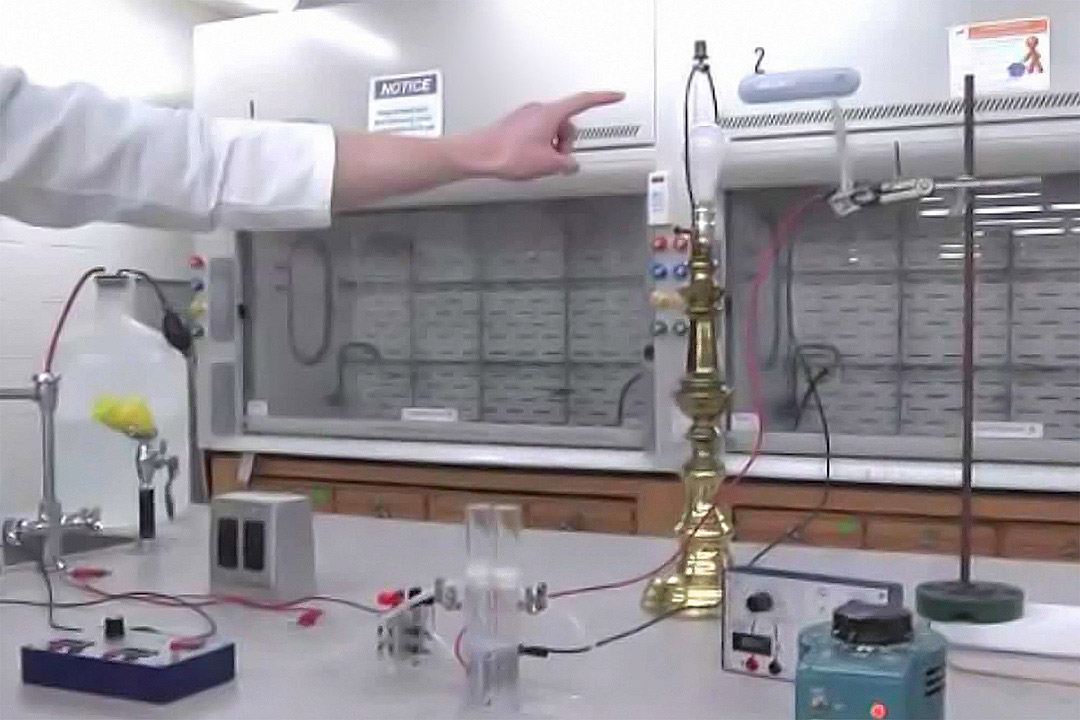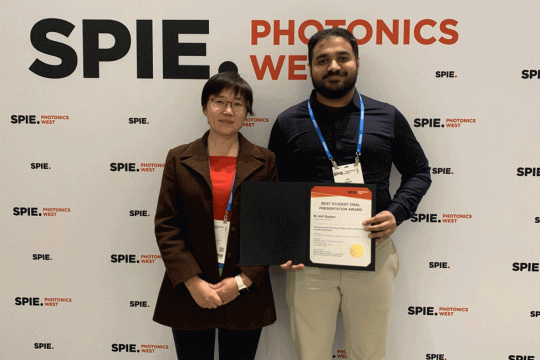Program helps high school teachers develop lessons on clean energy and fuel cells
School of Chemistry and Materials Sciences offers workshop for sixth consecutive year
A hydrogen vehicle getting fuel. The Clean Energy/Fuel Cells for Electricity Generation workshops show the participants how to run experiments focused on fuel cell construction, electricity generation using a hydrogen fuel cell, solar electrolysis of water and other topics.
Rochester Institute of Technology faculty are helping high school teachers develop lessons about the science behind clean energy and fuel cells. New York state teachers for subjects including general science, environmental science, and Earth science have been taking advantage of the Clean Energy/Fuel Cells for Electricity Generation program offered by RIT’s School of Chemistry and Materials Science from March through May.
The program, funded for the sixth consecutive year by Constellation Energy, an Exelon Company, provides the teachers with experiments, assignment descriptions, papers and other materials to incorporate into their curriculum. The workshops show the participants how to run experiments focused on fuel cell construction, electricity generation using a hydrogen fuel cell, solar electrolysis of water and other topics.
The Clean Energy/Fuel Cells for Electricity Generation program participants learn how to run experiments focused on topics such as solar electrolysis of water.
While in previous years the program was offered in-person on Saturdays in the spring, the COVID-19 pandemic caused RIT and high schools to close their doors and shift instruction to alternative methods. But the program’s instructors were determined to still offer the program despite the unusual circumstances. The workshop’s instructor, Principal Lecturer Alla Bailey, was able to pre-record the experiments, provide the teachers with measurements of the outcomes and use Adobe Connect and Zoom to host live discussions and answer questions about the material.
“They seem to appreciate it,” said Bailey. “Since they’re also at home and they’re teaching their classes online, it’s convenient for them to have my workshops with these demonstrations online.”
When the training program ends, the participants can submit a short proposal for incorporating workshop material and fuel cell kits into the classroom teaching. Even after the program is completed, Bailey said she will keep in contact with many of the teachers who participated in the program, offering guidance as they build their lessons. The program also typically offers a one-day workshop over the summer that allow the teachers to bring their students to do some hands-on experiments. Organizers will announce more information once it becomes available.












